Archive for the ‘trivia-ness!!’ Category
SLEEP ~ “The Balm of Hurt Minds”
..ayon yan kay Shakespere
Yung mga tao raw na may severe form ng apnea ( Sleep apnea means that you often stop breathing for 10 seconds or longer during sleep.) ay may risk na mamatay several times kaysa dun sa wlang sleeping disorder..
“This is not a condition that kills you acutely. It is a condition that erodes your health over time” Sinabi ni Dr. Michael J. Twery, director of the National Center on Sleep Disorders Research, sa isang telephone interview..
For people with apnea, their upper airway becomes narrowed or blocked periodically during sleep. That keeps air from reaching the lungs. In some cases, breathing stops for seconds to a minute or so; the pauses in breathing disrupt sleep and prevent adequate amounts of oxygen from entering the bloodstream.
“When you stop breathing in your sleep you don’t know it, it doesn’t typically wake you up,” Twery said. Instead, it can move a person from deep sleep to light sleep, when breathing resumes. But the overall sleep pattern is disturbed, and it can happen hundreds of times a night.
He said that a person typically will have four or five cycles per night of light sleep, deep sleep and REM (rapid eye movement) sleep, when most dreams occur. More deep sleep comes early in the night with more REM sleep closer to waking up. This pattern helps control hormones, metabolism and levels of stress.
http://health.yahoo.com/news/ap/med_healing_sleep.html
WAHH! ANOTHER COPY-PASTE POST! AYOKO NG GANITO!
xowi xowi ulit… patawarin nyo ako!
08~08~08 = Ang Ganda ng Date!
Posted on: August 8, 2008
08~08~08!
grabush tlga,, andito na ang engrandeng Opening Ceremony ng BEIJING OLYMPICS!

ganda ng fireworks,, bongga! parang may naganap lang na pagsabog.. haha
Beijing Olympics, Official Mascots
Like the Five Olympic Rings from which they draw their color and inspiration, Fuwa will serve as the Official Mascots of Beijing 2008 Olympic Games, carrying a message of friendship and peace — and good wishes from China — to children all over the world.
Designed to express the playful qualities of five little children who form an intimate circle of friends, Fuwa also embody the natural characteristics of four of China’s most popular animals — the Fish, the Panda, the Tibetan Antelope, the Swallow — and the Olympic Flame.
Each of Fuwa has a rhyming two-syllable name — a traditional way of expressing affection for children in China. Beibei is the Fish, Jingjing is the Panda, Huanhuan is the Olympic Flame, Yingying is the Tibetan Antelope and Nini is the Swallow.
When you put their names together — Bei Jing Huan Ying Ni — they say “Welcome to Beijing,” offering a warm invitation that reflects the mission of Fuwa as young ambassadors for the Olympic Games.
Fuwa also embody both the landscape and the dreams and aspirations of people from every part of the vast country of China. In their origins and their headpieces, you can see the five elements of nature — the sea, forest, fire, earth and sky — all stylistically rendered in ways that represent the deep traditional influences of Chinese folk art and ornamentation.
In China’s traditional culture and art, the fish and water designs are symbols of prosperity and harvest. And so Beibei carries the blessing of prosperity. A fish is also a symbol of surplus in Chinese culture, another measure of a good year and a good life.
The ornamental lines of the water-wave designs are taken from well-known Chinese paintings of the past. Among Fuwa, Beibei is known to be gentle and pure. Strong in water sports, she reflects the blue Olympic ring.
Jingjing makes children smile — and that’s why he brings the blessing of happiness wherever he goes. Y
ou can see his joy in the charming naivety of his dancing pose and the lovely wave of his black and white fur. As a national treasure and a protected species, pandas are adored by people everywhere. The lotus designs in Jingjing’s headdress, which are inspired by the porcelain paintings of the Song Dynasty (A.D.960-1234), symbolize the lush forest and the harmonious relationship between man and nature. Jingjing was chosen to represent our desire to protect nature’s gifts — and to preserve the beauty of nature for all generations. Jingjing is charmingly naïve and optimistic. He is an athlete noted for strength who represents the black Olympic ring.
In the intimate circle of Fuwa, Huanhuan is the big brother. He is a child of fire, symbolizing the Olympic Flame and the passion of sport — and passion is the blessing he bestows. Huanhuan stands in the center of Fuwa as the core embodiment of the Olympic spirit. And while he inspires all with the passion to run faster, jump higher and be stronger, he is also open and inviting. Wherever the light of Huanhuan shines, the inviting warmth of Beijing 2008 — and the wishful blessings of the Chinese people — can be felt. The fiery designs of his head ornament are drawn from the famed Dunhuang murals — with just a touch of China’s traditional lucky designs. Huanhuan is outgoing and enthusiastic. He excels at all the ball games and represents the red Olympic ring.
Like all antelopes, Yingying is fast and agile and can swiftly cover great stretches of land as he races across the earth. A symbol of the vastness of China’s landscape, the antelope carries the blessing of health, the strength of body that comes from harmony with nature. Yingying’s flying pose captures the essence of a species unique to the Qinghai-Tibet Plateau, one of the first animals put under protection in China. The selection of the Tibetan Antelope reflects Beijing’s commitment to a Green Olympics. His head ornament incorporates several decorative styles from the Qinghai-Tibet and Sinkiang cultures and the ethnic design traditions of Western China. Strong in track and field events, Yingying is a quick-witted and agile boy who represents the yellow Olympic ring.
Every spring and summer, the children of Beijing have flown beautiful kites on the currents of wind that blow through the capital. Among the kite designs, the golden-winged swallow is traditionally one of the most popular. Nini’s figure is drawn from this grand tradition of flying designs. Her golden wings symbolize the infinite sky and spread good-luck as a blessing wherever she flies. Swallow is also pronounced “yan” in Chinese, and Yanjing is what Beijing was called as an ancient capital city. Among Fuwa, Nini is as innocent and joyful as a swallow. She is strong in gymnastics and represents the green Olympic ring.
~*ang cute nila noh?*~
http://en.beijing2008.cn/spirit/beijing2008/graphic/n214068254.shtml
9000 Couples ang Nagpakasal sa China?!
Calum MacLeod, of the USA Today, reports that some 9000 Chinese couples are set to be married on August 8th, 2008, in Beijing, China.
WHOA! grabe huh, record breaking.. sabi kc..
1. Lucky number daw ang 8 sa China
2. Gusto raw nila i-honor ang opening day ng Beijing Olympics!
Couples married on Friday will be taking part in a promotional event, wherein they will sign a billboard that states, “A century of the Olympics; a century-long dream; a century-long prayer for happiness; a century of perfect marriage.”
toinks! “a century of perfect marriage,”? kaya pala may 39% divorce rate ang China,, wahahaha!
http://www.datingdames.com/080808-big-day-for-weddings-in-beijing-china/
Bakit daw ba swerte ang 8 sa China?
For Chinese the number 8 is considered lucky just like the number 7 is considered lucky in the West. Therefore, it should come as no surprise that the Olympic games in China start on August 8, 2008 or 08/08/08. In China you have to pay extra to have the number 8 in your phone number or license plate. In addition, home and business owners like to have the number 8 in their address.
So, why is the number 8 considered lucky in the minds of Chinese people. The main reason has to do with the pronunciation of the word for the number 8 in China. It is pronounced “ba” and sounds like the word for prosperity which is pronounced “fa”. Another reason why the number 8 could be considered lucky is because it is a perfect symmetrical shape. You can cut the number 8 in half vertically or horizontally, and both halves mirror themselves perfectly. Perfect symmetry lends itself to perfect balance. In Chinese Astrology, perfect balance is considered the ideal.
On the date 08/08/08 there is predicted to be a record number of weddings, even surpassing the number of weddings on 07/07/07. According to Chinese Astrology, the date 08/08/08 is in the year of the Rat, the month of the Monkey and the day of the Dragon. It just so happens that the Rat, Monkey and Dragon are in the same affinity group or trine. That means the three Chinese Zodiac animal signs are perfectly compatible with each other. Therefore, the date 08/08/08 will be especially lucky for Rats, Monkeys and Dragons.
http://www.onlinechineseastrology.com/content-detail.aspx?ID=108
*~PASENSYA NA KAYO AH~*
Hindi naman halatang puro Copy-Paste lng toh db?! haha sorry po, babawi nalang ako next tym, at isa pa, naka sulat naman jan ung mga links, so hindi yan considered as plagiarism..
AYOKO LANG PALAGPASIN ANG…
08-08-08 nang hindi nakakapag-post sa blog koh, wahahaaha!!!
at isa pa
happy ako kasi mejo nakausap ko si Enma koh, (sa friendster comments) haha 3 days ata kmi di nkapag chat^_^
HAPPY BIRTHDAY KAY LAUREN! MY BEST SEATMATE (pagadian)
HAPPY ANIVERSARY SA CURRENT SEATMATE KO NA SI CASI, AT SA KANYANG BOYFRIEND!
*~end~*

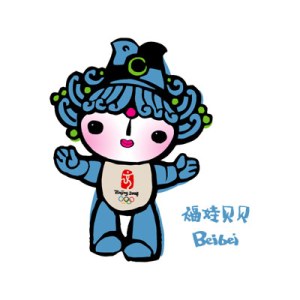
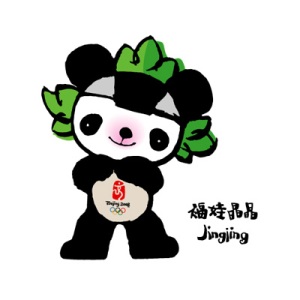
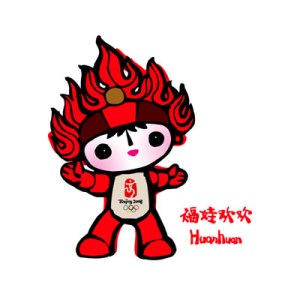
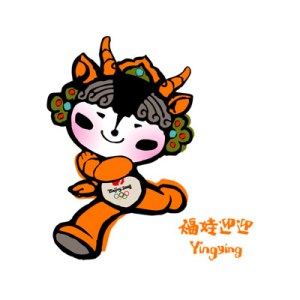
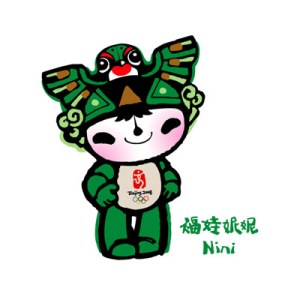
Recent Comments